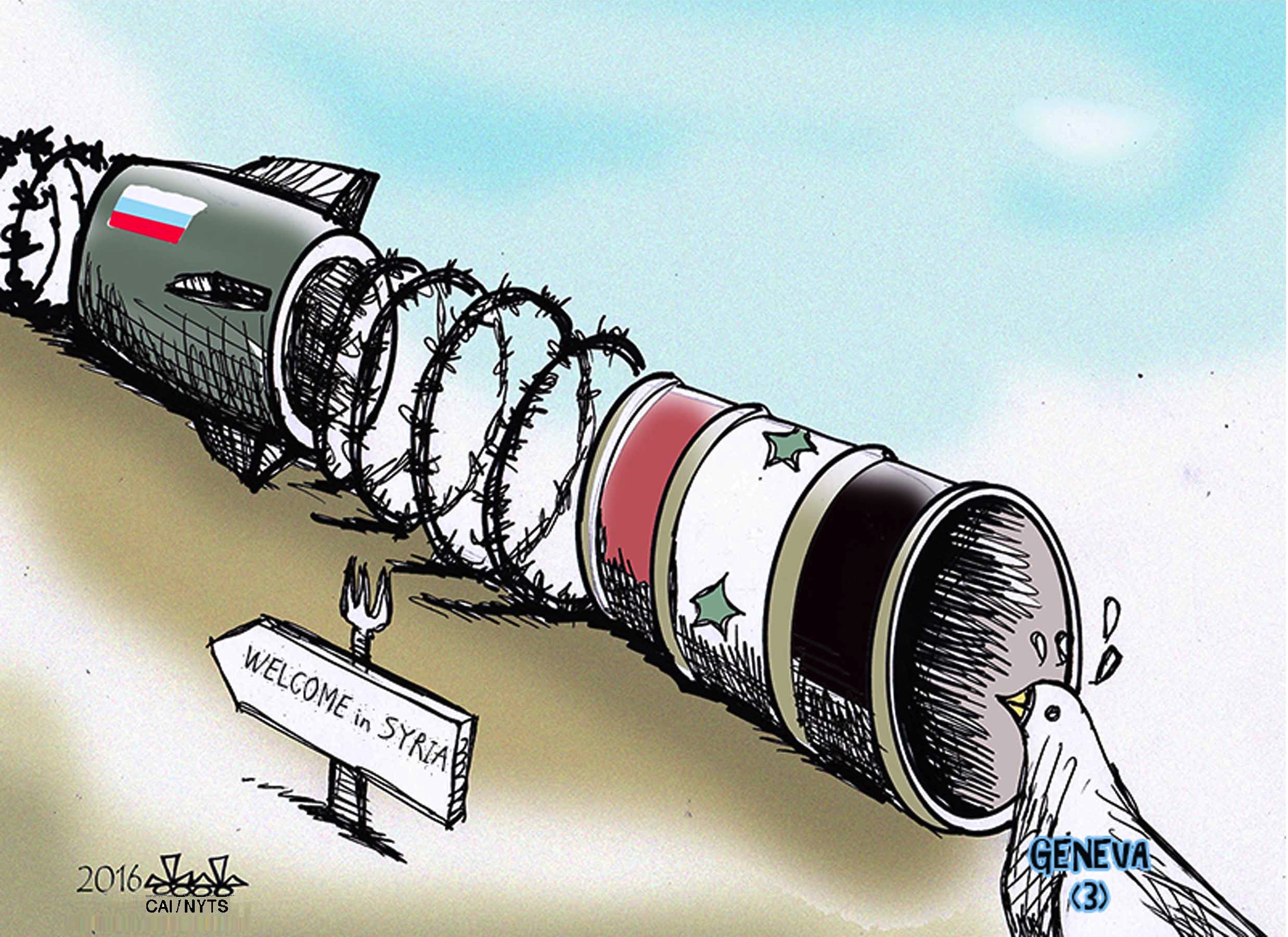The Syrian peace talks that are scheduled to resume in Geneva this week will take place under a framework set out in Vienna in October. These principles, agreed upon by the most important foreign players in Syria's war, include a commitment to secular governance, the eventual defeat of Islamic State and other terrorist groups, the maintenance of Syria's prewar borders, the preservation of its state institutions, and the protection of minority groups.
What they do not include is an effort to address the largest obstacle to lasting peace: the ongoing attacks against civilians and other atrocities that are intensifying divisions among the Syrian factions who will eventually have to govern together. If the deliberate carnage does not stop soon, diplomacy alone will be unlikely to suffice to end the conflict.
The war has continued for so long, in part, because both the Syrian government and the armed groups it is fighting believed that they would ultimately prevail. Russia's entry into the conflict has helped change that calculus. But, while Russian airpower has bolstered the government enough to keep it from collapsing, it has not been enough to make significant progress against the opposition.



















With your current subscription plan you can comment on stories. However, before writing your first comment, please create a display name in the Profile section of your subscriber account page.